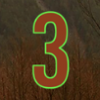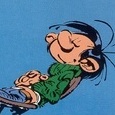LostInTheMovies
Members-
Content count
396 -
Joined
-
Last visited
-

Twin Peaks Rewatch 52/53: The Return, Parts 17 and 18
LostInTheMovies replied to Jake's topic in Twin Peaks Rewatch Episodes
This is great, because I heard a podcast with that actor a few months ago and he pretty much speculated that this was the process behind him getting hired (at least once he figured out it wasn't because he'd been to David Lynch's house to meditate before, which apparently Lynch had completely forgotten). -

Twin Peaks Rewatch 52/53: The Return, Parts 17 and 18
LostInTheMovies replied to Jake's topic in Twin Peaks Rewatch Episodes
Wait, why would ABC run "to be continued" on a series that had been cancelled? -

Twin Peaks Rewatch 52/53: The Return, Parts 17 and 18
LostInTheMovies replied to Jake's topic in Twin Peaks Rewatch Episodes
-

Twin Peaks Rewatch 52/53: The Return, Parts 17 and 18
LostInTheMovies replied to Jake's topic in Twin Peaks Rewatch Episodes
Awaiting the Final Dossier's arrival in a local bookstore, I finally made my way to this last forum thread which I didn't get to in the past 2 months. And I'm finding this particular post a fascinating read in light of some of the interviews Sabrina Sutherland and Mark Frost - and Sherilyn Fenn - have given lately which sheds (a little bit of) light on the process behind the series and Lynch's approach to it. Basically it seems to me that many of these dangling threads are less a case of Lynch saying "Screw the script" and throwing out explanations that were in it than of him ADDING new, one-off, unexplained material to the script. Not in every case, maybe not even in most, but certainly in a lot of the examples you point out. A few observations: -- According to both Sutherland and Frost, the first two hours were written before the rest of the story (Frost got pretty specific at a recent appearance, saying him and Lynch discussed the series for a year (2012-13), wrote the screenplay for the first two hours in the next year (2013-14), and wrote the rest of the material the year after that (2013-14, which puts much of it *after* the Showtime announcement). I strongly suspect this leads to what you deftly call "the Bill Hastings website problem." When I watched that scene in pt9, I had the odd sensation that I was watching like a several-seasons-later retcon, rather than something that was all written and worked out ahead of time. Maybe, in a sense, I was? I kind of like the idea that Lynch/Frost wrote a "pilot" without knowing where it would lead and then more or less left it intact as they worked out the various threads, writing as if their hands were foced even though of course they could go back and scrap/reinvent the beginning if they wanted to. Maybe this was their way of getting back into the mode they'd been in when the wrote the actual pilot back in 1988, with no firm plans of how it would unfold from there? This partly explains why so many threads of pt1/2 kind of wither away and why it has such a different feel in many ways from the rest of the series, despite all the "2-hour movie" claims. - We now 100% know, thanks to both Fenn and Frost, that Audrey was supposed to run a hair salon and that her main (possibly only?) scene was going to be her getting assaulted by Richard. She was gonna be in Sylvia's place. Fenn cried when she read the script and did not want to play this role, so Lynch (by himself, though he shared it with Frost, who approved) rewrote the scene during production into what we know see. Much more to be said about this, which I've said elsewhere, so I'll leave that be for now - but we also know Lynch winged a lot of the Roadhouse scenes too, writing them late in the game on his own (along with other material), so I think it's less a case of having some subterranean story going on than sort of weaving a dream based on a combination of momentary impulses and outside challenges. - Ok, spoiler-y warnings for the Dossier I guess (I haven't read it yet but this is what I've heard - I think mostly sourced from public announcements, though I can't be sure): -

Twin Peaks Rewatch 51: The Return, Part 16
LostInTheMovies replied to Jake's topic in Twin Peaks Rewatch Episodes
Way late reply (I'm slooowly making my way through these threads - finally almost to the finale one!) and this is more a general riff on the theme of Leland/Bob than a specific response to Nordelnob's points, but as I've been thinking about this a lot, especially in the wake of where the Return ultimately takes Bob, here goes... Well, you're *kind of* onto something. I think the character initially did have a point, to draw attention to the uncanny, almost unknowable/unmentionable phenomenon of abuse in the Palmer household in a way that only heightened its charge. Think how (spoilers for Mulholland Dr) the blue box and key in amplify the mundane object of the blue-colored key that Diane gets, so that it's psychological importance becomes manifest externally. That's what a visual artist, especially one as open to surreal, abstract approaches as Lynch, does: gives us startling, visceral images representing emotions that are very real but hard to articulate (especially through straightforward representation). However, as soon as Leland was revealed as the killer Bob became a bit thematically superfluous - even distracting. So why stick with/double down on Bob after the reveal? Well, the idea of him as an evil spirit, already seeded early in s2, becomes useful for a couple reasons: to give the story somewhere to go after "the killer" is revealed, as ABC demanded, but also to soften the shocking blow of beloved, respectable Leland being an incestuous rapist and serial killer...not just for the audience but also possibly for Ray Wise himself, who was devastated by this twist (he didn't find out until just before the episode was shot). Arguably then, an aspect of the mythology - when taken too literally - grew out of some compromises which ultimately undermine the original point. In a way, what we see in the next episode (are we still avoiding spoilers in this thread?) - a giant Bob ball punched out by a green-gloved Englishman ex machina - recognizes and mocks what Bob became. Anyway, let's look at the reverse of what you said, which I think is equally if not even more true: If Leland would NOT have raped Laura anyways without being possessed by BOB, then I just don't see the point of making a sexually abusive father the killer in the first place. I've compared this before to a hypothetical: what if Schindler's List revealed at the end of the film that the Nazis who massacred 6 million Jews were actually werewolves in human suits, and the innocent Germans had been taken over by the full moon or something. Obviously that's a much more extreme and ridiculous example, but despite Laura being a fictional character, her situation - especially as depicted in FWWM - is all too real and the pain of that is as real for the individuals who experience it. Why give expression to the troubling, very real phenomenon only to brush it under the rug as supernatural hocus-pocus? Now, that said, a supernatural spiritual entity BOB from the Black Lodge *did* become a part of Twin Peaks; likewise, in FWWM Lynch gave us signs that Leland was responsible for and aware of his actions (probably to the point of not even knowing there was a Bob). In the train car, Leland says, on one side of Laura, "I always thought you knew it was me," and Bob says, on the other side of her, "I never knew you knew it was me!" The suggestion is that it was, in some sense, both. Maybe that's Lynch wanting to have his cake and eat it too but I think it's also speaking to a larger truth, getting back in a way to what the ephemeral, hard-to-in-down, yet terrifyingly present entity of Bob was originally supposed to indicate. We are embedded in forces larger than us, which often feel overpowering, but we still have agency and especially consciousness within that. This is, really, the message of all Lynch's works, I'd argue. I think there is no "real Leland" if we try to distance him from all the bad things done in his body. His character becomes a meaningless cipher, whom we only meet once or twice; in trying to protect the Leland character, we end up destroying him. I really do think the entire power and weight and resonance of Twin Peaks disintegrates into dust if we dissociate "the good Leland" from "the bad Bob." Worst of all, it ends up dovetailing perfectly with a real-world situation where powerful men repeatedly refuse to take any responsibility for their actions and people refuse to believe it's even possible that they would do this. Middle-class lawyers rape and terrorize their daughters all the time, the fact that it seems improbable is at the very heart of the mystery Lynch and Frost created, and the fact that at times they toy with it actually being improbable is probably this mystery's greatest weakness, one that fortunately the best parts of Twin Peaks overcome. As for Coop & the doppelganger, and how *that* plays (or doesn't play) into s3 and the show as a whole, that's a post for another day... -

Twin Peaks Rewatch 51: The Return, Part 16
LostInTheMovies replied to Jake's topic in Twin Peaks Rewatch Episodes
Oh man, I *just* realized that the strand of hair isn't just a shorthand "DNA from the subject" thing but actually kinda corresponds to the look of the tulpa. Granted, Dougie's "long hair" was differently formed than Mr. C's but both were quite distinct from the usual well-kept Coop hair we knew for 2 seasons. (And I seem to recall hearing that Lynch was quite concerned with keeping Coop's hair in form back in s2, as MacLachlan was growing it out for a part - hence why it seems "bigger" in the s2 premiere, if still contained in the G-man style. Plus there's a theory out there of Coop's hairstyle in FWWM being subtly different and therefore implying a dreaming pre-TP Coop in some scenes and a Lodge-trapped post-TP Coop in others.) Funny how the little details always offer more to dig into. -

Twin Peaks Rewatch 51: The Return, Part 16
LostInTheMovies replied to Jake's topic in Twin Peaks Rewatch Episodes
Thanks - it was a great show. -

Twin Peaks Rewatch 51: The Return, Part 16
LostInTheMovies replied to Jake's topic in Twin Peaks Rewatch Episodes
Granted, this may be partially informed by 17/18 but I think I felt this way immediately after 16 too: I think Diane's rape is pretty crucial to the story and handled in a thoughtful, if troubling, way whereas Audrey's was not. Indeed, everything about that storyline - including Richard - feels like it didn't quite add up to much (I wonder if this is partly due to rewrites of Audrey's character?). -

Twin Peaks Rewatch 52/53: The Return, Parts 17 and 18
LostInTheMovies replied to Jake's topic in Twin Peaks Rewatch Episodes
Interesting, Stalker has been coming up a lot on Twitter. -

Twin Peaks Rewatch 52/53: The Return, Parts 17 and 18
LostInTheMovies replied to Jake's topic in Twin Peaks Rewatch Episodes
Don't forget the second version of Dougie (who seems pretty different from the first) who returns to Janey-E and Sonny Jim at the beginning of pt18! -

Twin Peaks Rewatch 52/53: The Return, Parts 17 and 18
LostInTheMovies replied to Jake's topic in Twin Peaks Rewatch Episodes
This is a good point, because when Cooper awoke in the hospital and was very apparently the full character we knew from s1/s2 I thought, "Well there goes the (more interesting to me) idea that good and evil Cooper are both parts of a singular whole." But maybe in a way the Cooper we're seeing in Pt. 18 is the "real" Coop to the extent "real" has meaning in a show that blurs so many boundaries? Only real counter to this idea is that in s2 they were already trying to show Coop as a flawed individual leading up to his downfall in the finale. -

Twin Peaks Rewatch 52/53: The Return, Parts 17 and 18
LostInTheMovies replied to Jake's topic in Twin Peaks Rewatch Episodes
tfw when you were carefully visiting one page at a time and/or not going past stuff you'd stopped at before and suddenly all threads are marked as "read" and you don't know why and know you've lost track of what you've read and where you were. Anyway, been great keeping tabs on this forum. It was busy yet just contained enough for me to follow everything so I ended up spending a lot more time here than dugpa and reddit, which could get overwhelming. And can't wait to hear Chris and Jake on this two-parter. As I said on Twitter, I can't think of anything more in their wheelhouse than deep-diving into the wild juxtaposition between super-lore-y comic-book showdown and existential avant-garde road trip (and everything else in between). -

Twin Peaks Rewatch 50: The Return, Part 15
LostInTheMovies replied to Chris's topic in Twin Peaks Rewatch Episodes
For some reason when I read this, by "herself" I thought you meant Gersten, not Becky. Which obviously doesn't make a whole lot of sense but had me thinking of all kinds of alternate scenarios where Gersten is a Lodge spirit or a ghost or some such haha. -

Twin Peaks Rewatch 50: The Return, Part 15
LostInTheMovies replied to Chris's topic in Twin Peaks Rewatch Episodes
I think Lynch noticed this too after coming up w/ the character name, and mentioned it in an interview with the same assumption (about Billy Wilder). -

Twin Peaks Rewatch 49: The Return, Part 14
LostInTheMovies replied to Jake's topic in Twin Peaks Rewatch Episodes
OT, but that's a compelling piece which just makes me wish Film Crit Hulk would drop his gimmick already. I get it, it got people to pay attention to him in the first place but the ALL-CAPS & "Hulk says" shtick makes it kind of annoying to read tbh. On another note, he was recently a guest on Fire Talk With Me (an episode I haven't listened to yet) so I'll be interested to hear what he sounds like in person. Really hope he didn't do the interview in-character haha. EDIT: This line made me laugh though: "THE SHOW TAKES PLACE IN 1983. THE DUFFER BROTHERS WERE BORN IN 1984." And also feel vaguely sad that apparently the Duffer Brothers are a year younger than me.




